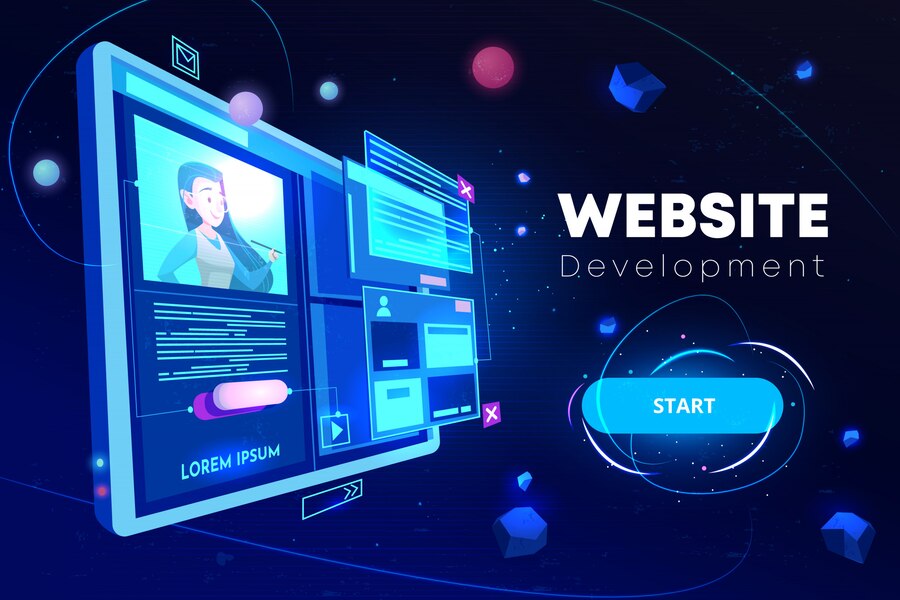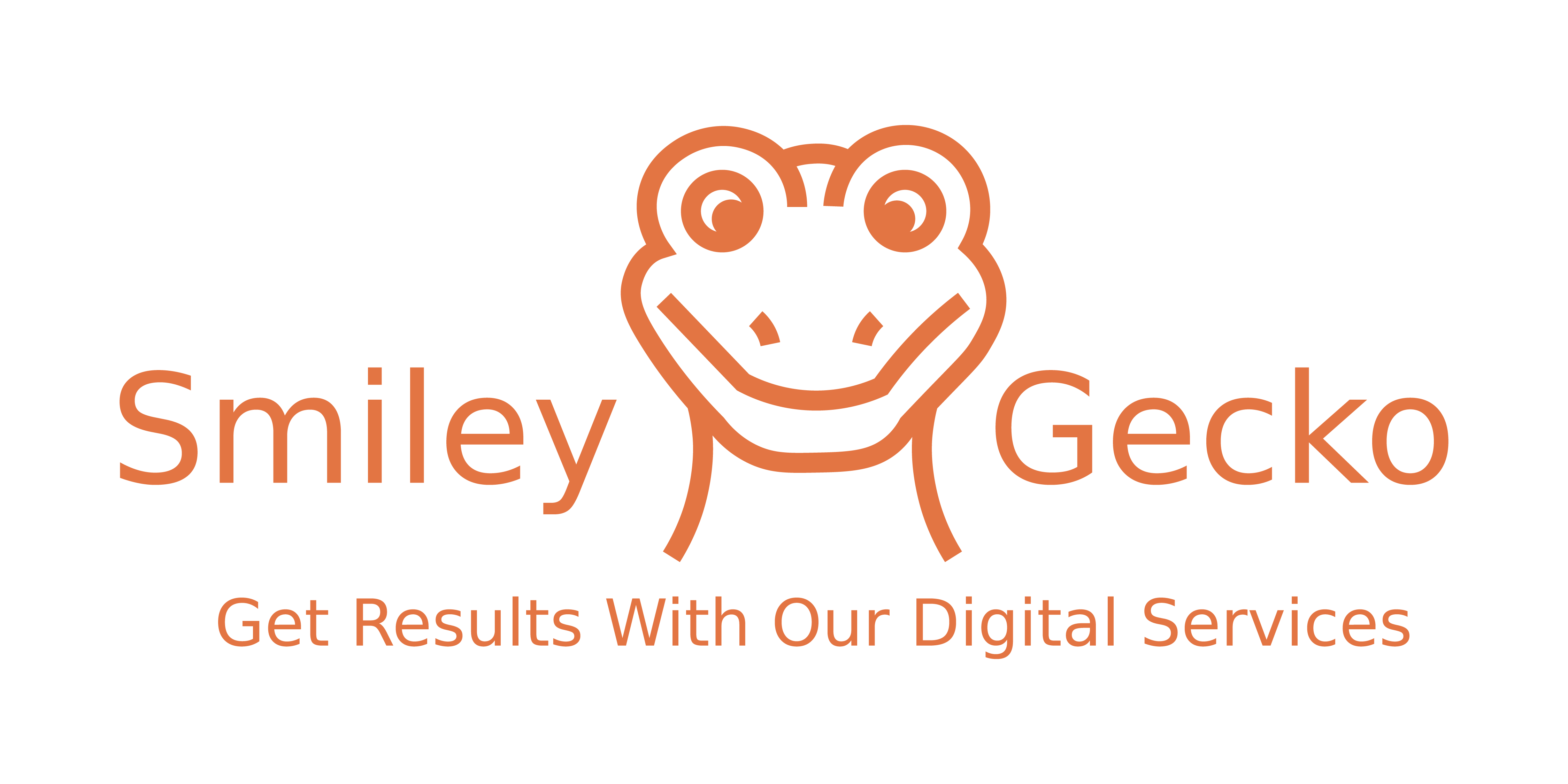How can one define web development?
Web development encompasses all aspects of making and keeping websites and web apps up and running. Online development encompasses a wide spectrum, from creating basic static pages to creating sophisticated, dynamic and interactive online apps utilising a variety of frameworks and technologies.
Due to the increasing reliance on the web for client acquisition, product distribution, and operational efficiency, web development has emerged as a crucial competency for today’s businesses and service providers. Another creative and satisfying profession is web development, which involves writing code to implement ideas and solve issues.

Frequently asked questions (FAQs) on web development will be addressed in this blog, including:
Can you tell me the different kinds of web development?
To begin with, what exactly does a web developer do?
What knowledge and resources are necessary for creating websites?
How does one go about becoming a web developer?
It’s important to know about several kinds of web development.
There are two main categories of web development: front-end and back-end.
A website or web application’s user interface and user experience are the focus of front-end development, a subset of web development. The layout, design, and functionality of a user-facing website are created by front-end developers using markup languages like HTML, CSS, and JavaScript.
The development of a website or online application’s server-side logic and data management is known as back-end development. PHP, Ruby, Java, and C# are some of the languages used by back-end developers to build server-side code that interacts with databases, APIs, and other services.
Web developers can be full-stack, specialising in either front-end or back-end programming, or they can specialise in one area and work exclusively on that.
In what ways does a web developer contribute to a project?
It is the job of a web developer to design, build, test, and maintain websites and online applications so that they satisfy customers’ needs and exceed their expectations. An individual web developer may collaborate with other developers, designers, project managers, and stakeholders on a smaller or larger project, depending on its nature and scope.

A web developer often is responsible for the following:
- Making plans for and laying out the components of a web app or website
- Utilising a wide range of languages, frameworks, and tools for code writing and debugging
- Building and testing an online platform, including its features, performance, and security
- Managing and integrating data from many sources, including databases and APIs
Web application and website development includes: – Putting the application or website up and running on a server or in the cloud – Finding and repairing problems and bugs – Making the app or website more user-friendly, accessible, and search engine optimisation friendly - Assisting with documentation and project maintenance
- Interacting with customers, end-users, and fellow programmers
What knowledge and resources are necessary for creating websites?
In addition to a wide range of technology and tools, web development calls for a blend of technical and soft abilities. Web developers need to have the following abilities and resources:
All web developers should be proficient in the following three languages: HTML, CSS, and JavaScript. Web pages are structured and written using HTML, which is controlled by CSS and adds functionality and interactivity using JavaScript.
Web developers may need to employ a variety of programming languages and frameworks for back-end development, depending on the nature and scope of the project. Many popular options include: Node.js, Laravel, Django, Rails, Spring.NET, Express, Ruby, Java, C#, and a plethora of others.
- Databases and APIs:
To store, retrieve, and manipulate data for a web application or website, a web developer needs to understand how databases and APIs work. Databases and APIs such as MySQL, MongoDB, PostgreSQL, Firebase, RESTful, GraphQL, and many more are widely used.
- Web design and UI/UX:
In order to build a website or web app that is appealing, easy to use, and responsive, a web developer has to know the fundamentals of web design and UI/UX. Photoshop, Sketch, Illustrator, Figma, Bootstrap, Material Design, and a plethora of other tools and techniques are utilised in web design, user interface and experience development.
The ability to utilise version control and deployment technologies is essential for web developers. These tools help with code and project management, tracking, and updates. Many popular tools are available, including Git, GitHub, Bitbucket, Heroku, and Amazon Web Services (AWS).
- Debugging and problem-solving:
In order to identify and resolve difficulties, defects, and mistakes inside the code and the project, a web developer must possess strong debugging and problem-solving abilities. Numerous ways and tools exist for addressing problems and debugging, including Chrome DevTools, Visual Studio Code, Stack Overflow, and countless more.
- Communication and collaboration:
To effectively collaborate with users, clients, and other developers, a web developer needs strong communication and collaboration abilities. Collaboration and communication tools and platforms include a wide variety of options, including but not limited to Slack, Zoom, Trello, Jira, and many more.
What is the best way to become a web developer?
As a discipline, web development is enormous and ever-changing. While there isn’t a single, foolproof method for learning web programming, there are a number of good starting points and resources to draw from.
Here are a few things to keep in mind as you learn web development:
Prior to beginning web development courses, you should have a firm grasp on the path you wish to take (full-stack, front-end, or back-end) and the ultimate goal you aspire to achieve (personal, professional, or academic). By doing so, you may zero in on the most relevant languages, frameworks, and tools for your learning needs.
- Graduate from the ground up:

Any website or web application must begin with a solid foundation in HTML, CSS, and JavaScript; thus, mastering these languages is the first order of business when getting into web development. To get your feet wet in web development, there are many resources available online, including courses, tutorials, books, blogs, podcasts, and videos. W3Schools, MDN Web Docs, freeCodeCamp, Codecademy, Courera, Udemy, and countless more can be found online.
If you want to become a better web developer, the greatest thing you can do is build projects and practice what you know. Examples of online resources that can help you hone your coding skills include CodePen, JSFiddle, Repl.it, and countless more. The Odin Project, Frontend Mentor, Codewars, and countless more are examples of online platforms, communities, and challenges where you may discover and build projects.
- Experience cutting-edge knowledge and tools:
After you’ve got the fundamentals down pat, you can go on to more advanced material that will help you achieve your web development goals. Mastering complex subjects and technologies, including web design, programming, frameworks, databases, APIs, version control, deployment, and UI/UX is possible with the help of online courses, tutorials, books, blogs, podcasts, and videos. W3Schools, MDN Web Docs, freeCodeCamp, Codecademy, Courera, Udemy, and countless more can be found online.
- Never stop learning and improving:
New trends, technology, and best practices appear daily in the ever-evolving industry of web development. Always be learning and improving your abilities as a web developer by keeping up with the newest news, blogs, podcasts, videos, newsletters, and forums related to web development. This will help you stay current and competitive in the industry. Among the numerous popular and trustworthy resources, there are CSS-Tricks, Smashing Magazine, The Web Dev, Dev.to, Hacker News, Reddit, and many more.
Summary
Building, designing, and maintaining websites and web apps that cater to different audiences and fulfil different objectives is what web development is all about. It’s an exciting and lucrative business. The technical and soft skills necessary for web development, in addition to a wide range of tools and technologies, can be acquired and honed through a variety of online and offline resources and platforms. If you want to be at the forefront of your field, you need to always study and update your abilities, and web development is no exception.





0 Comments